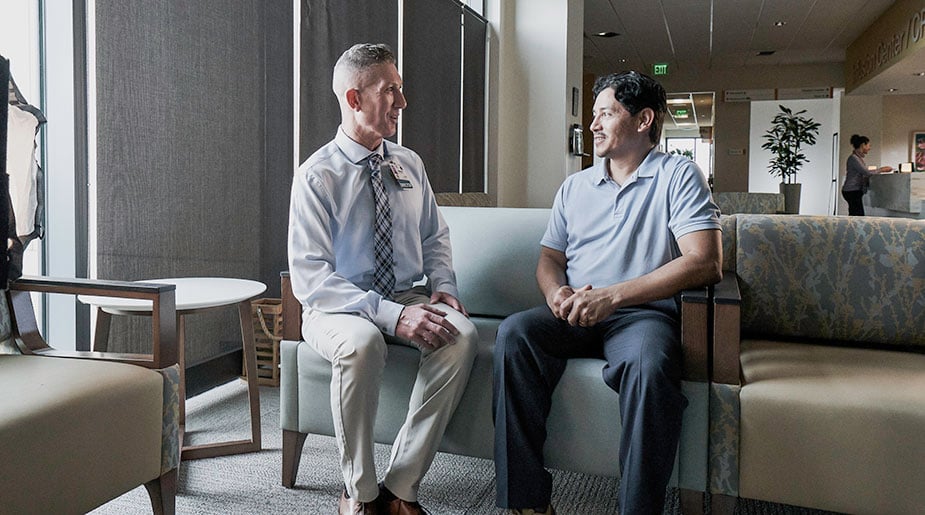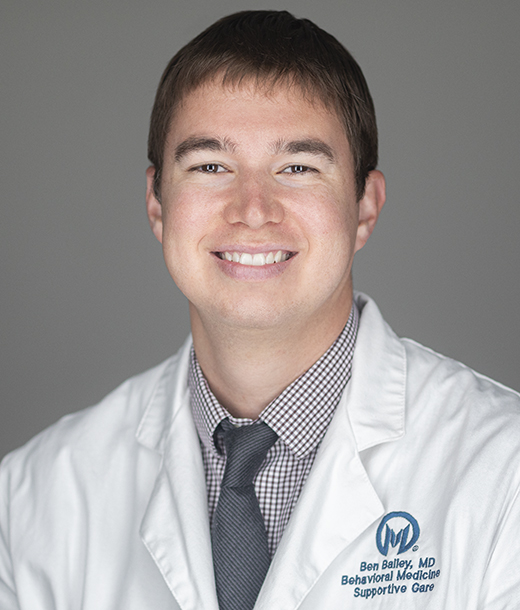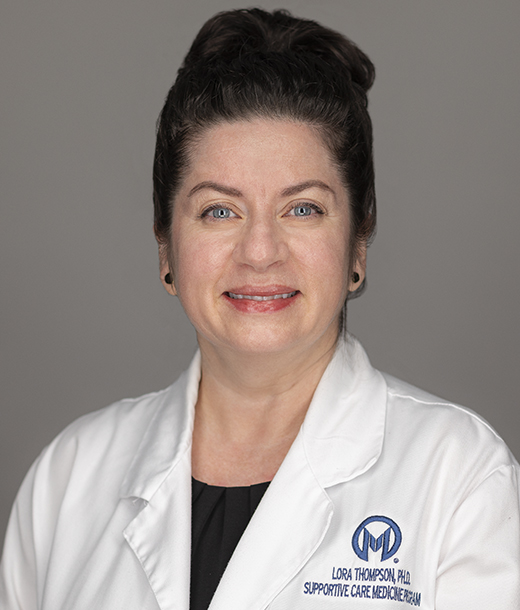Supportive Care Medicine for Moffitt Patients

Supportive Care Medicine may be provided together with curative and life-prolonging treatment. While most medical treatments are aimed at treating the disease, Supportive Care Medicine directs its efforts at minimizing the overall impact that being seriously ill has on patients and families. Whether it is for physical or emotional pain management, supportive care is about more care – not less. It is medical care that considers the whole person, not just the disease.
What is Supportive Care Medicine and how can it help managing pain?
Supportive Care Medicine is expert medical care dedicated to relieving the pain, distress and other symptoms that can accompany serious illness. It is specialized care and aims to treat the whole person. Serious illness affects patients and their families, including physical, emotional, social and spiritual challenges. Supportive Care Medicine is provided by team members who work together to support patients and families in all of these areas.
The focus of the care is on well-being; on ensuring that all reasonable treatment options are explored; on having patients and families make informed health care decisions; on maximizing comfort and minimizing unwanted hospitalizations or treatments; and on patients living the best life possible with a serious illness.
When should Moffitt patients seek Supportive Care Services?
Involvement from the Supportive Care Medicine team is often helpful at the time of diagnosis, when symptoms are present. Patients with more advanced illness also benefit from supportive care services and the benefits are even greater for those patients and their family members who seek help earlier.
Patients may be referred to the Moffitt Supportive Care Medicine Program for consultation at any stage of cancer, including at time of diagnosis. The program works collaboratively with other healthcare practitioners to provide the extra layer of support that patients often need while undergoing anti-cancer treatments. While others are working to treat the disease, Supportive Care Medicine focuses its efforts on relieving the physical and emotional distress caused by the disease and assisting with planning ahead.
Coping with Cancer: Emotional and Physical Pain Management
Moffitt’s supportive care services in Tampa include four offerings of individualized care focused on the needs and goals of patients and their families throughout the course of illness and treatment:
- Integrative Medicine
Provides complementary therapies, such as mindfulness and meditation techniques, acupuncture, yoga and massage therapy for stress reduction, relaxation, added comfort and relief. Read more about our Healing and Wellness services. - Behavioral Medicine
Medication management, therapy and counseling are provided by the Supportive Care Medicine Program psychiatrists and psychologists to help reduce and manage anxiety, depression, sleep problems and other stressors or coping challenges. - Palliative Medicine
Specialists provide pain and symptom management throughout the course of illness to improve comfort, quality of life and daily function. This service also includes social workers and chaplains to provide emotional, spiritual and practical support for adjusting to living with a serious illness. The team members help with transitions of care and advance care planning. - Adolescent & Young Adult (AYA) Program
This program addresses the unique concerns and emotional needs of young adult patients and survivors ages 15 – 39, with resources and services, such as fertility risks.
If you are interested in palliative care in Tampa as a patient at Moffitt Cancer Center, your current Moffitt provider can refer you to our Behavioral and Supportive Care Medicine Clinics. For more information, please call 1-888-663-3488.
-
Supportive Care Medicine Leadership

Program
Supportive Care Medicine
Title
Interim Chair, Department of Supportive Care Medicine
Specialty
Hospice & Palliative Medicine
-
Supportive Care Medicine Specialists
Our supportive care in oncology specialists offer a range of services that can help patients before, during and after cancer treatment.

Program
Supportive Care Medicine
Specialty
Hospice & Palliative Medicine
4.8 (39)
Program
Supportive Care Medicine
Specialty
Hospice & Palliative Medicine
4.8 (45)
Program
Supportive Care Medicine
Specialty
Hospice & Palliative Medicine
4.8 (44)
Program
Supportive Care Medicine
Title
Interim Chair, Department of Supportive Care Medicine
Specialty
Hospice & Palliative Medicine
Supportive Care Medicine








